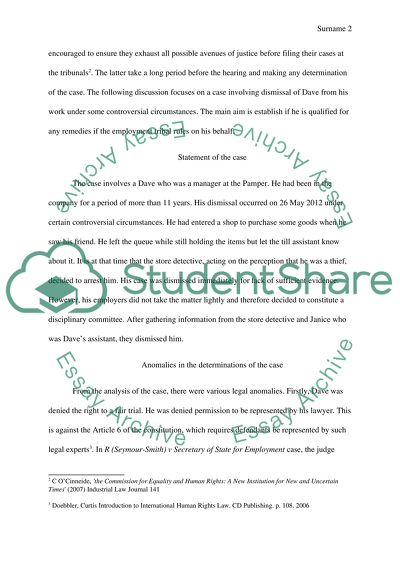Cite this document
(“Employment law Coursework Example | Topics and Well Written Essays - 1750 words”, n.d.)
Employment law Coursework Example | Topics and Well Written Essays - 1750 words. Retrieved from https://studentshare.org/law/1470861-employment-law
Employment law Coursework Example | Topics and Well Written Essays - 1750 words. Retrieved from https://studentshare.org/law/1470861-employment-law
(Employment Law Coursework Example | Topics and Well Written Essays - 1750 Words)
Employment Law Coursework Example | Topics and Well Written Essays - 1750 Words. https://studentshare.org/law/1470861-employment-law.
Employment Law Coursework Example | Topics and Well Written Essays - 1750 Words. https://studentshare.org/law/1470861-employment-law.
“Employment Law Coursework Example | Topics and Well Written Essays - 1750 Words”, n.d. https://studentshare.org/law/1470861-employment-law.


